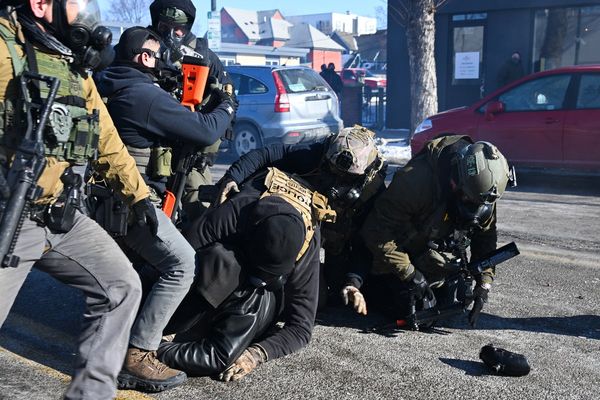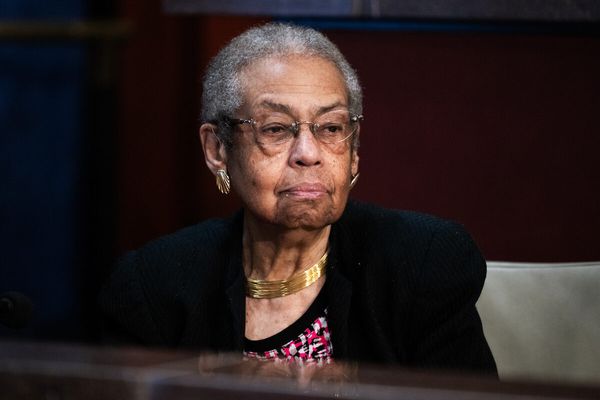One of London’s most senior openly gay police officers has spoken out after comedian Rosie Jones suffered a “vile” ableist and homophobic attack on a train.
Chief Superintendent Chris Casey said “utterly abhorrent” abuse, intimidation and violence motivated by hate will not be tolerated by British Transport Police.
Jones, 35, revealed that she and fellow TV presenter Lee Peart were travelling home from a gig when a group of three mocked their voices and threw wine at them on a service from Brighton to London Victoria Station.
Ch Supt Casey said of the popular pair: “Thankfully, Lee knew how to report what was happening - using our text number 61016 - allowing us to send officers to meet them, make sure they got home safely, and launch an investigation into the offenders.”
Jones, who has ataxic cerebral palsy, said the October 5 incident was a reminder that people with disabilities “should never be made to feel like guests in an unwelcoming and hostile world”.
Peart also posted about the ordeal on Instagran, showing red wine stains on the train wall and telling followers: “This is the reality we’re getting to now in this country. We were attacked by ableist and homophobic a*******s.”
Ch Supt Casey said policing has come a long way since he reported being abused by anti-gay bigots at a rail station not long after joining BTP from university in 2006.
In an article for the Standard in National Hate Crime Awareness Week, he wrote: “At the time, it was the only one on record.
.jpeg)
“I knew I couldn’t be the only one - it just wasn’t being reported. That experience has stayed with me and shaped how I lead today.”
The head of BTP policing across London spoke last June about “actively” having to think whether being “open about my sexual orientation” was a good idea.
Because there were no LGBTQ+ people in senior roles, he was concerned if it would inhibit his career or make work-life challenging.
Ch Supt Casey said: “National Hate Crime Awareness Week - born out of remembrance of the horrific London nail bombings targeting LGBTQ+ and Black and Asian communities in 1999 - is a chance for us to remind ourselves and others of why and how we can stand against hate.
“Rosie and Lee’s experience is a timely reminder of its importance.
“Sadly, we know that hate crimes like this appear to be on the rise, with racial hate crime remaining the most prevalent and other passengers targeted on account of their gender, sexuality or disability in an environment where people should feel safe making their daily commute, heading home, enjoying a night out.
“Sometimes officers find themselves becoming victims of hate crimes too, abused for the colour of their skin, religion or perceived sexuality, while trying to do their duty.
“Despite this, we continue to treat hate crime with the seriousness it deserves.
“I’m glad that we’re a force made up of different people of all races and creeds, and that our people are free to be who they are at work. I want the same to be true for everyone using the rail network.”







